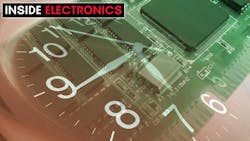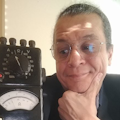Talking About Timing in Electronic Systems
Timekeeping is a critical aspect of modern society, and mankind’s pursuit of accurate clocks continues to be a dominant factor in both peace and war. Vital for applications such as navigation and event coordination, timing has become even more important since the emergence of connected intelligent devices and systems. They depend on timing to ensure reliable connectivity in products such as IoT devices and other similar smart systems.
Advanced MEMS timing solutions have emerged that offer advantages to legacy solutions, helping to reduce the size and power consumption of IoT devices with smaller oscillator packages and integrated features. MEMS oscillators can replace two or three crystal devices because they will drive multiple loads. They can also extend battery life with ultra-low current operation while offering greater stability, enabling IoT devices to stay in sleep mode longer.
Our communications infrastructure is creating a denser network—closer to the consumer and in less-controlled environments—with shorter-range radios, higher frequencies, and tighter channels, creating an even greater demand on accurate and small timing solutions.
In this podcast, we talk to Piyush Sevalia, Executive Vice President of Marketing at SiTime, about how the company’s timing devices keep everything in sync with greater dynamic stability. According to SiTime, its MEMS timing solutions deliver the performance needed to keep networks running, even under the most demanding conditions like extreme temperatures, rapid airflow, shock, vibration, and electromagnetic interference.
SHOW NOTES
00:46 – Importance of Timekeeping
4:10 – Timing in Military & Defense
6:43 – How Timing Helps AI Applications
10:52 – GPS and Automotive
12:01 – Product that Supports High-Demand Applications
13:28 – Keeping Timing in Mind
>>Check out these TechXchanges for similar articles, videos, and podcasts
About the Author
Alix Paultre
Editor-at-Large, Electronic Design
An Army veteran, Alix Paultre was a signals intelligence soldier on the East/West German border in the early ‘80s, and eventually wound up helping launch and run a publication on consumer electronics for the US military stationed in Europe. Alix first began in this industry in 1998 at Electronic Products magazine, and since then has worked for a variety of publications in the embedded electronic engineering space. Alix currently lives in Wiesbaden, Germany.
Also check out his YouTube watch-collecting channel, Talking Timepieces.



